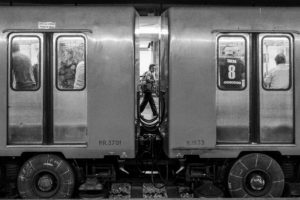by Roman Zarate
This paper assesses the impact of urban transit improvements on labor allocation between informal and formal firms in Mexico City. I exploit the construction of new subway lines and a Bus Rapid Transit (BRT) system to study the relationship between commuting costs and informality rates. An important characteristic of labor markets in developing countries is the presence of informal, household-run businesses that employ more than 60% of the total workforce, and are substantially less productive than formal firms. This study explores a new mechanism that can explain the prevalence of informal workers: the high commuting costs within cities. In the second part, I develop a quantitative urban model to measure the welfare effects of these improvements accounting for this reallocation across sectors and estimate optimal policies to attract more workers to formal firms.

